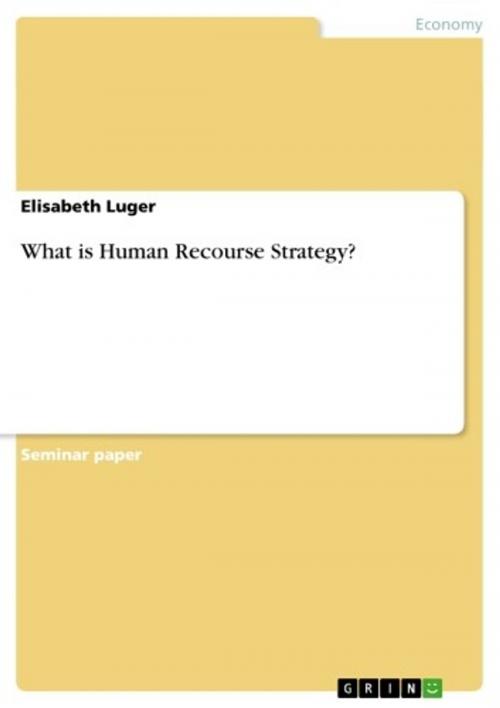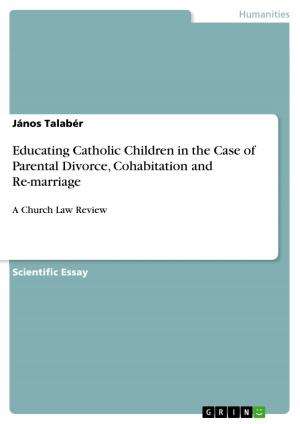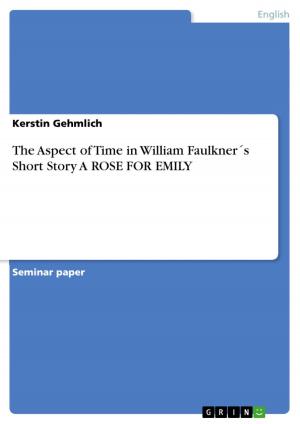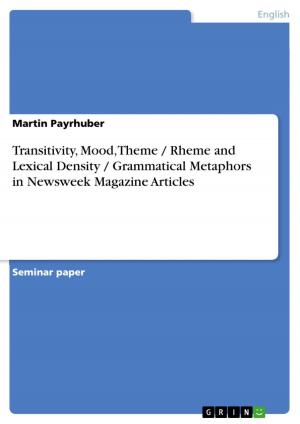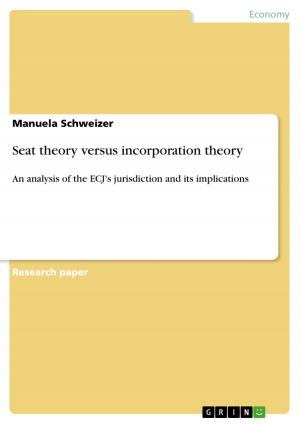| Author: | Elisabeth Luger | ISBN: | 9783638253109 |
| Publisher: | GRIN Publishing | Publication: | February 11, 2004 |
| Imprint: | GRIN Publishing | Language: | English |
| Author: | Elisabeth Luger |
| ISBN: | 9783638253109 |
| Publisher: | GRIN Publishing |
| Publication: | February 11, 2004 |
| Imprint: | GRIN Publishing |
| Language: | English |
Seminar paper from the year 2004 in the subject Business economics - Personnel and Organisation, grade: A, Trinity College Dublin (Personal), 11 entries in the bibliography, language: English, abstract: The field of Human Recourse Strategy (HRS) is a relatively new area of research and therefore a lot of different approaches and opinions exist. With the emergence of different schools, approaches and frameworks the gap between the academic world and the one of managers and their businesses widened up. Therefore, Wright and McMahan (2001, p.50) suggest the need for a good theory, which goes in line with the business strategy field where Elfring and Volberda (2001) see the need for synchronizing the diverse ideas which have developed (2001). To get the whole picture I will first illustrate the historical background and the value of Human Recourse Strategy (HRS), then go on to the different approaches of HRS and also examine if these approaches are rather a plan, an outcome or a process. Finally, I will conclude with an own perspective on the HRS field.
Seminar paper from the year 2004 in the subject Business economics - Personnel and Organisation, grade: A, Trinity College Dublin (Personal), 11 entries in the bibliography, language: English, abstract: The field of Human Recourse Strategy (HRS) is a relatively new area of research and therefore a lot of different approaches and opinions exist. With the emergence of different schools, approaches and frameworks the gap between the academic world and the one of managers and their businesses widened up. Therefore, Wright and McMahan (2001, p.50) suggest the need for a good theory, which goes in line with the business strategy field where Elfring and Volberda (2001) see the need for synchronizing the diverse ideas which have developed (2001). To get the whole picture I will first illustrate the historical background and the value of Human Recourse Strategy (HRS), then go on to the different approaches of HRS and also examine if these approaches are rather a plan, an outcome or a process. Finally, I will conclude with an own perspective on the HRS field.
